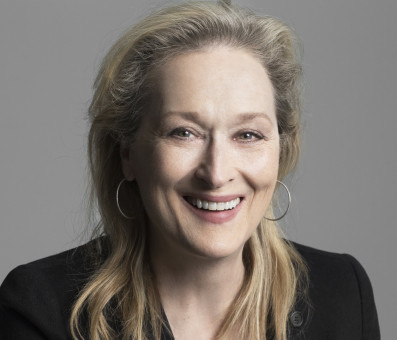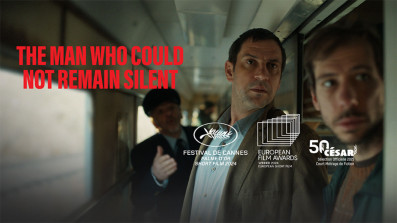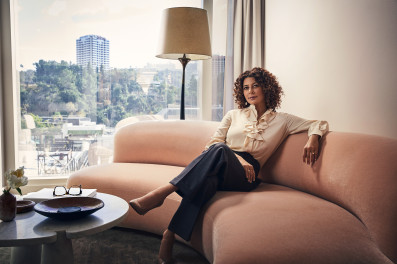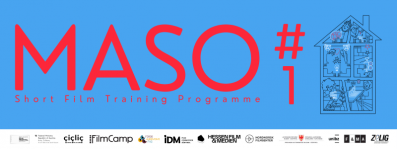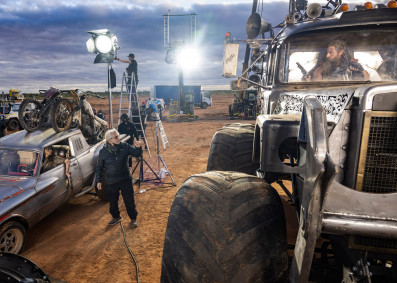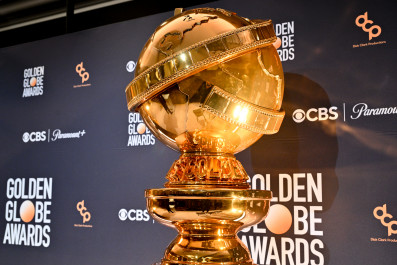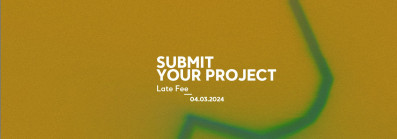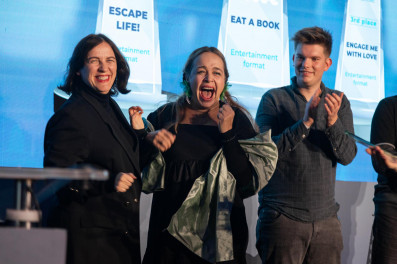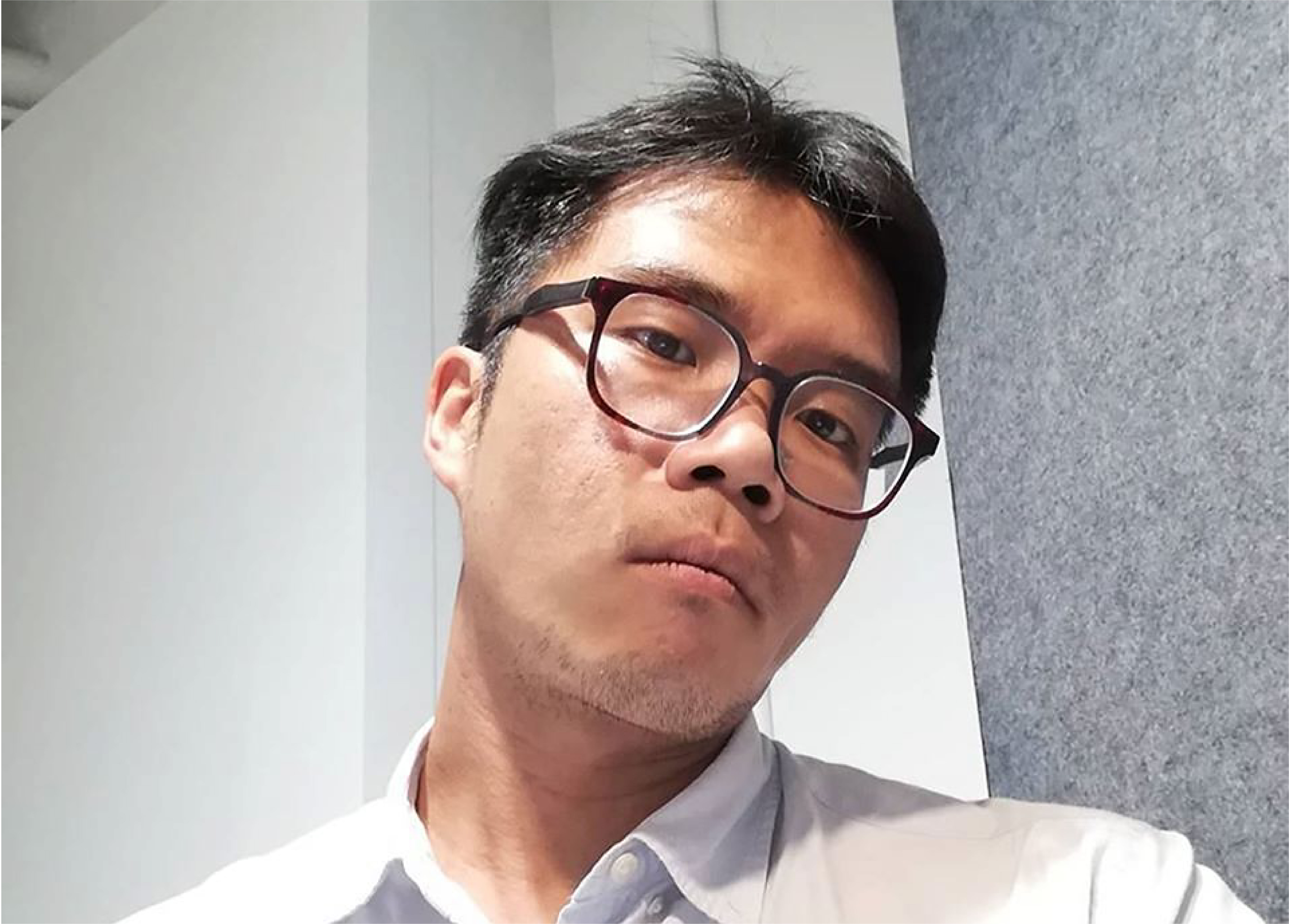
Interview with Ratchapoom Boonbunchachoke, director of “Aninsri daeng”
Film presented at Pardi di domani of Locarno International Film Festival
Ratchapoom Boonbunchachoke is a Thai filmmaker of Teochew-Hainanese descent, born, brought up and based in Bangkok. He graduated from the film department of Chulalongkorn University. He works full-time as a scriptwriter for a studio, writing commercial features and television series. He also works as a film lecturer and critic. In 2020, Ratchapoom was selected to participate in the Berlinale Talents program. His latest film “Aninsri daeng” was presented at Pardi di domani of Locarno International Film Festival so our collaborator Tettyo Saito made an interview with this splendid young director.
Why did you want to become a film director? And how did you become it?
It’s a long story. My father is a film buff, though he isn’t a hardcore cinephile in a way like screening Godard or Antonioni to his kids. He’s more into American award-winning film, AKA Oscar. He introduced many lesser-known films to my attention when I was only watching cartoons and films kids my age tended to watch. As normally, back then, surrounding people tended to focus only on the cast of the film, my dad pointed to the importance of the maker behind the film, the director. Names like Tarantino, Coen Brothers, Scorsese, Coppola, Kurosawa, etc. were normalized in his conversation, though by that time I still didn’t want to be a filmmaker, I just liked watching films. There was one time he went to see Harmony Korine’s Gummo (I’m not sure if it’s this one or some small American indie that occasionally got released here), and came back to tell me how strange the film was. He usually bought 4-5 film magazines monthly. I grew up reading those magazines and some of them had a section where they translated reviews from foreign magazines and it was full of films I didn’t know or weren’t even released in Thailand like Sokurov’s Russian Ark, or Mullan’s Golden Lion-winning The Magdalene Sisters. At the same time, my aspiration to be a writer grew stronger. Filmmaking seemed to me a bit impossible. Writing a book is more plausible. My mom once said that writers were someone who read a lot. So, I started reading lots of literature, fictional works when I was in high school. However, it took time to finish one book, so I slightly shifted to the other narrative medium which was film. Before that, I was afraid of ‘difficult’ films. Yet I believed that to be a filmmaker, you had to be well-versed in your field. So, I kept watching for more and more, strange, obscure, difficult films. Slowly I became deeply involved and fascinated with the medium.
When you started to be interested in movies, what movies did you watch? And what movies could you watch in Thailand at that time?
We could find a copy of arthouse film in illegal DVD shops. When I discovered the shop, I mainly bought Ghibli anime because there was no official DVD in Thailand back then. Haha. Then I was interested in watching more obscure films, the films I kept finding while reading film magazines. I think it was Kieslowski's Blue that was really paradigm-shifting to me. I was completely confused at the end of the film that I needed to look for the analysis on the internet which made me realize how cinema could convey something so profound, so abstract. Cinema could do many things other than simply telling a story to entertain. After that I have more cinematic adventures aside from illegal DVD shops, I attended screenings in culture institutes like Goethe, Alliance Francaise, public library, etc. I discovered many filmmakers that I later regarded as my godfather, godmother like Werner Schroter, Jacques Rivette, Marco Ferreri, Otar Iosselliani, Manoel de Oliveira, Nagisa Oshima, Shuji Terayama, Ulrike Ottinger, Chantal Akerman, Alexander Kluge etc. These filmmakers helped make me realize the potential of cinema.

About the film in Thailand at that time when I was young. We had some theatres that focused on indie films. But there weren’t so many. I mainly gained knowledge of the films from pirate DVD shops.
What is the starting point of your film "Aninsri daeng"? Your own experience, news in Thai, or some other things?
I have a project of making a series of short films that tackles the question of colonialism in Thailand. Thailand is an ‘exception’ of Southeast Asia as we always say on the official occasion that we are the only one in the region that wasn’t colonized by any western countries. It’s all in the history textbook. Thai kids are taught that way for several decades. It’s part of our identity being uncolonized. However, the alternative, revisionist historians might say otherwise and show the gaps and cracks in the official history that could unsettle this solid notion of being untouched from colonial evil. Thailand though was never officially colonized was deeply implicated in the colonial network of the West and therefore informally colonized since the mid-19th century. The series now has 3 short films which Aninsri Daeng is the third one dealing with ‘the American era’, or Cold War years. The first two are La Double Vie de Maniejan (2013) which deals with the French territorial colonization combining with the exploration of the voiceover as a colonizing film device (similar to how Aninsri Daeng deals with voice dubbing), and Anna and the Prince (2014) that uses the famous Broadway The King & I as a springboard to explore the legacy of the British empire.
But despite basing my films on different Western empires (French, British, American), I never intend my films to be anti-western at all. My main target of criticism is the internal colonization in Thailand. Western colonization is undoubtedly bad, but the colonization done by the local ruling class is much worse, as they’d disguise it as mere governing the country. Thai ruling class might say that the country was never colonized, but I think the truth is Thailand is the colony of Bangkok. The ruling class in Bangkok expands their territorial occupation, cultural standardization, natural exploitation throughout the whole country without people being aware that they are colonized.
About Aninsri Daeng, I first thought of the idea when I was part of the thesis committee in the university a few years ago. One student wanted to make a film that paid tribute to the genre in Thai cinema of 70’s -80’s. We call this genre “bomb the mountain, burn the hut”. It’s like a B-grade action flick set in the rural area. The hero is normally a policeman sent to infiltrate the criminal network in the rural village. In the climactic scene, they always bomb the mountain and burn the hut. The student said he wanted to make this film with a post-synchronized dubbing technique in the same fashion as how these films were made back then. Other committee members tried to suggest something to refresh the genre formula, one of the committees was a film historian and he talked about the dubbing convention. While listening to him, I got the idea of how to twist the genre convention, but the student didn’t buy it. He wanted to make a straightforward genre tribute. The idea stayed with me for quite a while. When the time came, I made it into the film.
When audiences watch this film, they want to know about the tradition of dubbing in Thai cinema under the Cold War. Its synopsis says "[...] every actor is dubbed by the voice that suits their roles. The hero sounds heroic and the villain sounds villainous". Please elaborate on this tradition to Japanese readers more detailedly? Why was this born? What films follow this tradition for example? And is there a personal memory about this tradition in your film experience?
I’m not a film historian, so my answer might be incorrect in some parts. The dubbing tradition was popularized after the World War for broadly 2 reasons, technical one and ideological one.
The technical one would be that after the World War, film equipment was expensive and hard to find. Small-sized film companies wanting to produce films needed to lower their budget. To shoot a film mute and adding voice in the post was one of the practical techniques. Bigger studios still shot films with sound on film in the same era. But the number of movies shot with the sound-on-film technique was considerably lower. Also, another technical reason was the star system in that era. The famous, much-sought-after actors would have to be in 4-5 productions per day. Shoot one film in the morning, another film at noon, another in the evening and one at night. So, they don’t have time to rehearse or memorize the script. The convenient way for all is to put them in front of the camera, and some assistants hide behind the camera and say the line then the actor could repeat.

The ideological reason could be summarized that Thai audiences back then seemed to have this notion of beauty that should reside both on the surface and in the interior. Beautiful from inside out. And the voice is the element that reflects the inner beauty. Beautiful people should have beautiful voices. Evil people should have evil voices. Some actors might be beautiful-looking, but they couldn’t utilize their voices effectively enough. Voice actors then came to fix this deficiency. They were even famous in their own way. Misalignment of voice and face would throw off audiences. I think it’s interesting when the audiences first hear the actual voice of their favorite actors.
Also, what is interesting is the pronunciation and accent of Thai dubbing tradition is exceptionally unique. I can’t believe people talk like that in reality even in the years when the films were made. The dialogue in these films, if not badly written, is overtly literary. It sounds like they are taken out of the novel. It’s so unreal to hear it. I recall the huge fascination when I first watched some scenes from the film, E Pring Khon Rerng Muang (อีพริ้ง คนเริงเมือง - the title could be translated like Pring - the bitch who cruises the city) it’s a melodrama from 1980. The film follows the girl, Pring, who serially has 7 husbands, one by one, from after WWII to the 80s. In one particular scene, she has a fight with her mother-in-law because that Pring drinks in the house. The mother’s line is like “Pring! Why do you drink liquor in the house? This is an honorable house, not a brothel” to which drunken Pring would reply “Have madam ever lived in a brothel before? So, you know how a brothel is like?” The mother-in-law then would say “Pring! You whore!” And Pring would retort “Thank you for calling me a whore that means I’m still young and beautiful and sellable. Unlike you, madam, not to mention being sellable, even you give money to people they still won’t fuck you!” It’s so surreal! No one in their right mind would say that to their in-law! And the accent, the way the script put words together is very poetic in Thai. Some Thai soap operas nowadays still retain this way of writing dialogue. But now it’s widely regarded as bad, unnatural and old-fashioned writing. But to me, it’s so escapist and satisfying.
In relation to the previous question, impressive in this film is that this tradition overlaps the complex emotion of trans people for their own voice beautifully. It's the first time for me to see a film which features trans people's voices even if there are many films about them. How did you come up with this innovative idea? And how did you write the screenplay around this idea?
I think transgendered people’s voice in the old Thai film is close to non-existent. If there is a trans character, she tends to be dubbed by a male actor for a comic effect. In Aninsri Daeng, to have a female voice actor dubbing Ang with a femininely beautiful voice is to emphasize the tradition of inner beauty. I like the idea of disguising. A spy is a person who works in disguise. The way of a trans person to disguise as a cis person is alluringly complex, at least to me. It’s full of irony and paradox.
I also like the idea of queering the genre that seems very heterosexual. The spy genre is one of them. My main intention in venturing in queer cinema is not to discuss identity politics like how sexual minorities are oppressed in society. I’d like to see queer characters do politics. So it could be said (excuse my English), rather’d than portraying queer characters who are politicized, I’d like to create the queer characters who are politicizing. To push the boundary of the queer cinema as well. To have queer character roaming around doing things normally reserved for heterosexual characters, but also retain some queer distinction so that the film is not just a heterosexist story in queer disguise.
And I'm attracted to the romance between Ang and Jit. You depict it in a bittersweet and impressive way. Although Jit gives Ang his clumsy yet pure love, Ang hides a big secret in her heart, which is so heartbreaking. So, what is the most important thing when you depict their complex romance and relationship?
Actually, their relationship is the most personal aspect of the film to me. So personal that I don’t dare talk much about it. Hahaha. I was in a toxic relationship during the script process. So, their relationship somehow reflects mine at the moment. It’s not like I’m in a relationship with a spy or anything. But it’s the moment of realization that the person you’re happy being with, who has a pleasing, nice appearance might bear an underlying, harmful, or hurtful dimension within. It’s the moment that you can’t really trust the person. What you have might look great on the surface, but it would be painful to you eventually.
And, the core of this film is actors who play Ang and Jit. They embody attractive, complicated protagonists who have the fragile, colorful heart in turbulent Thailand. How did you find two actors, Sarut Komalittipong and Atikhun Adulpocatorn? How did you decide to collaborate with them in this film?
Sarut is from the theatre background. His work mostly is in physical theater. I’d been watching his stage performance for years before my friend suggested him to me when I looked for the actor to play Ang. Atikhun mainly works on screen and occasionally works on stages. He's also a casting director. What I find interesting in him is that because of his ‘seemingly nerdy look’, he’s always cast as a sidekick, comic character on TV. I tried to dismantle the stereotype of conventional beauty in typical gay Thai film. (There’s a HUGE number of them in Thailand. Mainly in TV series, and student short films) Gay characters in the more mainstream media have certain look, certain kind of handsomeness, the cuteness that despite being eye-pleasing, I find it toxic for typical gays people whose bodies don’t fit the beauty convention. I want to put actors who people wouldn’t normally consider them to play gay leading roles on screen. On one hand, it is to defamiliarize the way queer cinema is perceived around here. On the other hand, it’s to push the boundary. Gay men shouldn’t be perceived to be ‘physically perfect’, young, fit, spectacularly attractive. This is not to say that my cast is ugly. Hahaha. But it’s to make a film that is more inclusive for diverse kinds of bodies.

How is the current situation of Thai cinema? From outside, it seems good. After Apichatpong Weerasethakul, many talents appear at the prestigious film festivals like Phuttiphong Aroonpheng and Anocha Suwichakornpong at Venice, Thunska Pansittivorakul at Doclisboa, and you at Locarno. But, from inside, how do you see the current situation?
I think it’s not great in general, especially for independent films. The government has stopped giving financial grants to independent filmmakers for the past few years. So new films are now very difficult to make. From the outside, it looks good that we have many great films at the festivals. But honestly, we could have MORE with the proper support. I understand that many talented filmmakers have to give up and work in something else to survive.
When cinephiles want to know Thai cinema history, what Thai films should they see? And why?
It’s very difficult as many old Thai films are hard to find and they are without the English subtitle. There is a French scholar who is fascinated with Apichatpong’s films. She learned that ‘Uncle Boonme’ had many references of styles from the old Thai films (horror, soap opera, etc.) But she couldn’t find any publications in English or French that studied the topic. So, she moved to Thailand and studied Thai, rented a room nearby the Thai Film Archive so she could watch old Thai films. It’s so ridiculously tiring for foreigners to know Thai cinema!
But honestly, I couldn’t think of the Thai film that would introduce people to Thai cinema history. Actually, within Thai filmmakers’ circle, Thai cinema history is not widely known. Young filmmakers don’t know much about their country’s old film. (I myself don’t know that much) Unlike other countries such as US, Japan, or the Philippines, we don’t usually revisit our old films. It’s like Thai cinema resets every 10 years as the filmmakers don’t study the lineage, the root, or the history. For example, we know almost nothing about our B&W era. Also, many young filmmakers kinda look down on old films (which, to be fair, lots of them are actually quite irredeemably terrible)
If you choose one favourite Thai film, what film do you choose? And I want to know why. Is there a personal memory?
Apart from the usual names of contemporary directors that I admire like Apichatpong Weerasethakul, Anocha Suwichakornpong, Pimpaka Towira, Kongdej Jaturanrasamee, Nawapol Thamrongrattanarit, etc., I’d like to mention a few old Thai films. Now Thai Film Archive has been restoring and subtitling many classic Thai films. The classic would be Country Hotel (1957) by R.D. Pestonji. He’s a master of modern Thai cinema. The film is magnificent! An absurd where the whole story takes place in a lobby room in a hotel! Very surreal, very weird. Then apart from E-Prink Kon Rerng Muang I mentioned earlier, I’d like to recommend Waen Thong Loeng (The Brass Ring) a 1973 film by HRH Prince Anusorn Mongkolkarn. This melodramatic romance has an epic scale in the level of Gone with the Wind! Also, The Wife-eater (1974) by legendary Dokdin Kanyamarn. It’s a crime comedy film about a man who whomever he marries will mysteriously die later. So people start calling him a wife-eater. He has married 4 times and all wives die. When he falls for the fifth one, he needs to find out what is behind these deaths. It’s silly and funny. Puen-Pang (1983) by well-respected late Cherd Songsri is also my personal favorite. A very beautiful love story. In the part of more experimental and documentary, activist films like Tongpan (1977), On the Fringe of Society (1981), Hara Factory Workers Struggle (1975) are also worth a look. The Cruelty and the Soy Sauce Man (2000) by Phaisit Phanphruksachat, Birth of Seanama (2004) by Sasithorn Ariyavicha, Afternoon Times (2005) by Tossapol Boonsinsukh, Silence will Speak (2006) by Punlop Horharin and many more are mysteriously fascinating and sadly almost forgotten independent features in the early age of digital cinema.
Oh, I didn’t see that you specify one film. But I already wrote the answer. So, I keep it this way.
For my final question, do you have a plan to make a new short or feature? If so, please tell our readers shortly about it.
I’m developing my first feature. It’s called A Useful Ghost. It’s about a ghost trying to be useful.
Written by: Tettyo Saito

© Locarno Film Festival press kit


